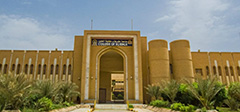Abstract
Plantains make a substantial contribution to food security and malnutrition eradication, thus making them a staple food in several tropical and subtropical climates. This research determined the mineral contents, antioxidant capacities and phytochemical constituents of plantain whole fruit (pulp and peel) and pulp extracts. To this end, the plantain samples were evaluated for their phytochemicals, mineral element content, and in vitro antioxidant properties. The phytochemical screening showed that the plantain whole fruit and pulp extracts contained phenols, terpenoids, flavonoids, cardiac glycosides, reducing sugars, alkaloids, and steroids. Tannins, on the other hand, were detected only in the plantain whole fruit extract. The mineral elements in the whole fruit were higher than those in the pulp, especially for iron, sodium, calcium, phosphorus, zinc, and copper. Among the mineral contents, sodium was predominant. In comparison to the plantain whole fruit extract, the pulp showed better scavenging activity for nitric oxide, DPPH, and hydroxyl free radicals. In conclusion, the findings revealed that unripe plantain whole fruit and pulp extracts may be a promising source of critical nutrients and bioactive substances.
Recommended Citation
ROTIMI, Damilare Emmanuel and ADEYEMI, Oluyomi Stephen
(2023)
"Comparative evaluation of the antioxidant activity, trace elements, and phytochemical analysis of the extracts of unripe plantain whole fruit and pulp,"
Karbala International Journal of Modern Science: Vol. 9
:
Iss.
2
, Article 2.
Available at:
https://doi.org/10.33640/2405-609X.3290
Creative Commons License

This work is licensed under a Creative Commons Attribution-Noncommercial-No Derivative Works 4.0 License.




